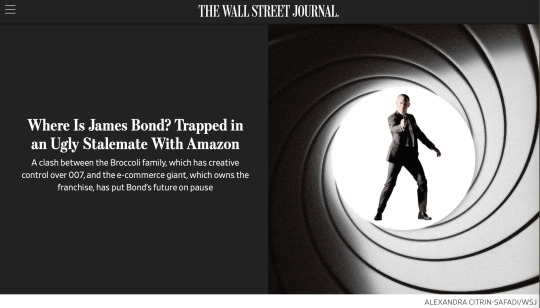#e-commerce rules
Explore tagged Tumblr posts
Text










Edmonton, AB (No. 1)
Edmonton is the capital city of the Canadian province of Alberta. Edmonton is situated on the North Saskatchewan River and is the centre of the Edmonton Metropolitan Region, which is surrounded by Alberta's central region. The city anchors the northern end of what Statistics Canada defines as the "Calgary–Edmonton Corridor", a region spanning between Edmonton and the city of Calgary, Alberta's largest city, which includes the many smaller municipalities between the two.
The area that later became the city of Edmonton was first inhabited by First Nations peoples and was also a historic site for the Métis. By 1795, many trading posts had been established around the area that later became the Edmonton census metropolitan area. "Fort Edmonton", as it was known, became the main centre for trade in the area after the 1821 merger of the Hudson's Bay Company and the North West Company. Edmonton remained sparsely populated until the Canadian acquisition of Rupert's Land in 1870, followed eventually by the arrival of the Canadian Pacific Railway in 1891, its inauguration as a city in 1904, and its designation as the capital of the new province of Alberta in 1906. Edmonton's growth as a city has been facilitated through the absorption of five adjacent urban municipalities (Strathcona, North Edmonton, West Edmonton, Beverly and Jasper Place) in addition to a series of annexations through 1982, and the annexation of 8,260 ha (82.6 km2; 31.9 sq mi) of land from Leduc County and the City of Beaumont on January 1, 2019.
Source: Wikipedia
#Canada Place#Edmonton Chamber of Commerce#Fairmont Hotel Macdonald#Alberta#Canada#summer 2024#travel#original photography#vacation#tourist attraction#landmark#cityscape#architecture#World Trade Centre Edmonton#Imperial Bank of Canada Building#Arthur J. Everett#Rule Wynn and Rule#Ross and MacFarlene#Japser Avenue#Alberta Hotel by James E. Wize
5 notes
·
View notes
Text
#digital marketing#@desmondjohnson183#online advertising#blogging#marketing strategy#contentcreation#seo#tiktok seo#Amazon#Amazon guidelines updates#Customer reviews changes#Amazon community rules#E-commerce tips#Online marketing insights#Authentic reviews#Affiliate marketing blog#Trust in online reviews#onlinemarketingcash4u
1 note
·
View note
Text
FTC Finalizes “Click-to-Cancel” Rule
The Federal Trade Commission (FTC) has finalized amendments to the Negative Option Rule, now retitled the “Rule Concerning Recurring Subscriptions and Other Negative Option Programs“ (“Rule”), which represents a significant overhaul of the regulatory framework governing how companies handle subscription services and automatic renewals. Over the years, the FTC has received numerous complaints…
#Annual Reminder#automatic renewals#billing information#deceptive practices#e-commerce#Federal Trade Commission#FTC#Negative Option Programs#Negative Option Rule#Restore Online Shoppers’ Confidence Act#ROSCA#subscription#telemarketing sales rule#Upsell
1 note
·
View note
Text
Ultimate Guide: Legal Compliance for E-commerce in India [2024]
To start and run an e-commerce store in India, you need to comply with various rules, laws, and regulations. Here’s a categorized overview of the major ones: Business Registration and Licensing: Obtain a valid business registration (e.g., Sole Proprietorship, Partnership, Private Limited Company, or One-Person Company) Apply for relevant trade licenses from the concerned state/local…
View On WordPress
#2020#Consumer Protection (E-Commerce) Rules#Data Protection and Privacy#E-commerce Regulations:#Labor Laws
0 notes
Text
Okay, so: there's a local restaurant whose online ordering process involves various selecting various sauces to be included with one's order – so many units of teriyaki sauce, so many units of hot sauce, so may units of peanut sauce, and so forth.
The idea is supposed to be that you can select any combination of sauces you want, as long as it adds up to no more than four units. However, what the app actually required is that you select exactly four units of sauces; it wouldn't let you submit the ordering form if the total wasn't exactly four.
Just today I discovered that they seem to have fixed it... not by correcting the errant validation rule, but by adding a "no sauce" option, which counts toward the required total of four.
Thus, it's now possible to place an order with, say, two units of teriyaki sauce rather than four by entering 2x "teriyaki sauce" and 2x "no sauce". Similarly, an order with no sauce at all is 4x "no sauce".
This is quite possibly the least intuitive ordering process I've ever encountered, and I've literally worked in e-commerce.
19K notes
·
View notes
Text
🛍️ E-commerce businesses, are you up to date on state sales tax and nexus rules? Stay compliant in the digital marketplace by understanding the complexities and leveraging technology.
#E-commerce#Sales Tax#Nexus Rules#Tax Compliance#Marketplace Facilitator#Multi-State Tax#Wayfair Decision#Tax Automation#Audit Risks#Tax Professionals
0 notes
Text
"Polish presidency of the EU Council announced breakthrough in early hours after marathon overnight talks on food waste reduction targets and measures to limit a throwaway clothing culture.
The EU has set its first ever legally binding targets for member states to cut food waste, with lawmakers agreeing on a 30% cut across retailers, restaurants, caterers and households by the end of the decade.
For food processors and manufacturers, the 2030 goal is a 10% reduction, with both targets based on the average in the three years to 2023. EU estimates suggest that over 59 million tonnes of food is shovelled into dustbins every year, representing a loss of €132 billion.
Reforms to the EU’s waste framework directive, agreed this morning [February 19, 2025] after a marathon negotiating session behind closed doors between MEPs and government delegates, also target the textiles industry.
New harmonised rules on extended producer responsibility (EPR) mean textile producers and fashion brands will have to pay a fee to help fund waste collection, sorting and recycling, based on how circular and sustainable their products are.
In a measure directly targeting ‘fast fashion’ practices such as cheap, almost disposable clothes from online platforms, EU governments are also empowered to adapt these fees based on the durability of garments.
“The rapidly growing e-commerce market brings many opportunities, but also represents a significant challenge, especially in terms of environmental protection,” the agreed text runs.
The legislation gives leeway to penalise aggressive marketing strategies that encourage clothes to be discarded before they are worn out, practices that according to the legislation are “likely resulting in an overconsumption of textile products and, consequently, an overgeneration of waste”.
Criteria that can be considered include the width of the product range offered by a retailer, and the provision or lack of a repair services and incentives.
Anti-waste campaigners welcomed EU action, but were disappointed by the level of ambition reflected in the headline targets.
“The EU and its member states committed to the UN Sustainable Development Goals 10 years ago, including a 50% reduction of food waste across the entire supply chain,” said Theresa Mörsen, a policy officer at the Brussels-based NGO Zero Waste Europe...
The agreement is provisional, subject to a rubber stamp from government ministers at an EU Council summit – a procedure which is normally a formality."
-via EuroNews, February 19, 2025
#fast fashion#food waste#food production#europe#eu#european union#waste#circular economy#textiles#fashion#fashion news#good news#hope
981 notes
·
View notes
Text


[ ᴊᴇꜱꜱ ᴍᴀʀɪᴀɴᴏ ] ʜɪꜱᴛᴏʀʏ ʟɪᴋᴇꜱ ᴛᴏ ʀᴇᴘᴇᴀᴛ ɪᴛꜱᴇʟꜰ
summary: jess moves back to stars hollow to open a new branch of truncheon books in his hometown, and tries not to murder the girl living in the apartment above him and the town enjoys watching another grumpy business owner fall in love with a bubbly inn manager. TW: none note: in love with him and not even in a funny way, i need a jess

“Are you sure this is the place you want?” Andrew asked for what felt like the millionth time. The bookstore owner gave the 25-year-old a nervous stare as he signed the last few papers.
“Yes, Andrew, for the millionth time, this is the place.” Jess sighed, he couldn’t blame the man for his hesitance, he hadn’t exactly left a good impression on the people of Stars Hollow while living there.
Out of all the places he’d imagined settling down, Stars Hollow, Connecticut was incredibly low on the list.
But he couldn’t deny the fact that it was a good commerce town, people passed through on business or on their way to Hartford all the time. So when his friends asked him where they should open a new branch of their bookstore, it was the first place he thought of.
Once all the paperwork was finished, Jess had spent the week driving back-and-forth from Philadelphia to Stars Hollow and everything was finally done.
Andrew took papers, “Okay, I’ll get these to Kirk—” He moved to grab his bags— “Have you met Y/N yet?”
Jess shook his head, Y/N the mysterious person that lived in the apartment above the bookstore, “Nope, haven’t run into her yet.” Andrew nodded, “Well, I better get going.”
Once the older man had left, Jess turned to the bookstore. There were cardboard boxes everywhere, and all the bookshelves had been emptied along with the walls, where the hanging bookshelves had made place for paintings.
Jess started to unload the first box of books when Luke walked in, with you tailing behind him.
“Oh come on, don’t lie,” You insisted, “It is so a different brand.”
The older man sighed, maneuvering his way through the mounds of boxes. “Y/N, for the last time: I’ve been using the same brand of coffee for the past twenty years.”
You crossed your arms, “Liar, I know you did something different with it.”
“Well fine, you got me, I put drugs in yours hoping they would shut you up,” Luke deadpanned, handing Jess a paper bag, “Here’s your lunch.”
You turned to him as well, “Oh, you must be Jess!” You exclaimed excitedly, “I’m Y/N, I live upstairs.”
You stretched out your hand for him to shake. Jess stared at you, it was 9 in the morning, how were you so upbeat already?
“This is the part where you take my hand and tell me it’s nice to meet me,” You whisper jokingly. “Jess Mariano,” He replied, shaking your hand as you give him a bright smile.
“Don’t you have places to be?” Luke questioned, staring at you. You raise an eyebrow at him, “What’re you talking about?”
The older man sighed exasperatedly, “The Inn.” Your E/C went wide in realisation, “Michel’s going to kill me!”
Without another word, you ran towards the door, almost tripping over a box of paintings on your way out, “Sorry!” You excused, and quite frankly Jess wasn’t sure if you were talking to the box or him.
“Wow,” He breathed as he watched you made your way down the street, only to stop halfway to pet Babette’s cat before resuming your run.
Luke nodded, a small smile on his face, “Yeah, that girl’s a storm with skin,” He replied, “So, you need any help with these boxes?”

Jess groaned as Voulez-Vous played loudly upstairs. He couldn’t say anything about it yet, though, per Stars Hollow rules you were allowed to play music as loud as you wanted to until 10 PM.
When Toxic started playing he had enough. He made his way up the creaky stairs. You’d left your door open, and Jess took it as a sign to go inside.
You were standing on your couch, singing along to the song, using your spatula as a mic. Jess watched you jump off and spin around, before finally coming to a halt in front of him.
“Oh, Jess, hi!” You grinned, not even slightly flustered, “Can I help you?”
“Yes, you can, by turning that god awful music down.”
Your eyes went wide, “Shit, is it ten already?” He shook his head, “No, you just have bad taste in music.”
You laughed, “Right, you’re the kind of guy that listens exclusively to Metallica and Iron Maiden,” You teased, “Hey, I’m making cookies, you want some? They’re almost done.”
“What I want is for you to turn down the music,” He deadpanned, arms crossed over his chest. You shrugged, “‘Kay, Roommate.” You reached for the stereo and turned down the music.
“Are you my roommate, ‘cause you’re not the landlord, you rent the place too, but you don’t sleep here— or your not supposed to, I’ve seen you sleeping on the couch— but your not my neighbour either,” You rambled, smiling at him.
“Just keep the music down,” He grumbled, “And if you have to play it at max volume, play some decent music.”
An hour after your little encounter, you came skipping down the steps, a plate of cookies in hand. “You never told me whether you wanted the cookies or not,” You said, putting the plate down, “So I brought them anyway.”
The black-haired man stared between the plate of cookies and your bright smile in confusion. Finally he rolled his chair away from the desk and grabbed something out of the drawer near him.
“Here,” He said, handing you a CD he’d burned himself, “Some acceptable music I think you’d like.”
You inspected the plastic case and grinned, “Thank you.” With one last sunbeam of a smile you turned around and practically skipped up the steps to you apartement.

#jess mariano#jess mariano x reader#jess mariano fanfic#Jess Mariano fanfiction#Gilmore Girls#Lorelai Gilmore#gilmore girls x reader
566 notes
·
View notes
Text
So Barbs and Jeff Bezos are fighting

James Bond has dodged more than 4,000 bullets. He has jumped from an airplane, skied off a cliff and escaped castration by laser beam.
Now, 007 is in a new kind of peril.
Nearly three years after Amazon acquired the right to release Bond movies through its $6.5 billion purchase of the Metro-Goldwyn-Mayer Studio, the relationship between the family that oversees the franchise and the e-commerce giant has all but collapsed. The decaying partnership has scuttled any near-term hope of a new Bond film—a black eye for Amazon’s ambitions in Hollywood, since at the time of the MGM sale, the Bond franchise represented a significant share of the $6.5 billion the company paid for the studio.
When it comes to Bond’s future, the power lies in the hands of Barbara Broccoli, who inherited the control from her father, Albert “Cubby” Broccoli, and who for 30 years has decided when a new Bond movie can go into production. She has told friends she doesn’t trust algorithm-centric Amazon with a character she helped to mythologize through big-screen storytelling and gut instinct. This fall, she characterized the status of a new movie in dire terms—no script, no story and no new Bond.
To friends, Broccoli has characterized her thoughts on Amazon this way: “These people are f— idiots.”
A representative for Eon, the production firm behind the Bond films, said Broccoli and other members of the family had no comment.
The two sides are at an impasse: Amazon needs Broccoli to furnish them with ideas for a new Bond movie, but Broccoli doesn’t want to make a new Bond movie with Amazon. The standoff, say people on both sides of the divide, boils down to a clash between the 20th-century Hollywood of big screens and big swings and a new entertainment industry ruled by Silicon Valley firms that prize data, algorithms and streaming subscriptions.
This story is based on interviews with more than 20 people familiar with the Broccoli-Amazon feud, including executives, business partners and friends.
READ MORE
279 notes
·
View notes
Text
To talk about monopoly & antitrust, I want to start off with your first day in Econ 101, when you learn "how prices work". The toy model that nearly everyone learns as one of the first things ever is that classic supply-and-demand graph of price and quantity; you know it, I don't need to show it. And in relation to how firms set price in a market, the explanation you get is something like:
"In a world with perfect information, zero transaction costs, rational agents, and no barriers to entry, new firms and/or increased output will enter the market until marginal price equals marginal cost"
This (seemingly) portrays a model where new companies "entering the market" is how prices go down. Like say there are Firms A, B, and C, engaging in oligopolistic pricing for a normal good; what happens is some new Firm X (with the same production costs) emerges with the sole business strategy of "offer prices lower than them because they are skimming" and it drives everyone's prices down in a race to the bottom. That, in a sense, competition between identical firms drives the price equilibrium.
That isn't very true, not in practice and not even theoretically; the 101 stuff just sort of biases you to see it that way. Firm X above is being rational in one way but silly in others; why would it enter a market where its competitors are making healthy profits just to fuck that up, knowing it has no advantage they can't immediately replicate in response? And pay all the fixed costs other firms have already paid to make that 0.1% profit? In real life firms almost never do this, they compete over (actual or perceived) advantage or market segmentation. And it also means that - if all firms are truly the same in a market - cooperating on price, far from being aberrant behavior, is the natural thing to do. Why would I look at my rival firm and lower my price to "undercut" them, knowing that they 100% can just lower it too? We both lose, immediately. In practice, companies often set their prices by looking at the prices of competing firms and matching them!
Many things actually drive the price equilibrium of course, but one of the biggest - and most useful for our purposes - is the substitution effect. If companies defacto cooperate on prices all the time, why is the price not infinity? Well because if you are selling steaks and set the price to infinity, I'm not gonna buy it! I can just buy chicken, for me it's pretty much the same. And chicken is cheaper to make than steak. As a chicken firm, I totally can set my price under your steak and you can never, ever match it; that is a real advantage, one from asymmetries of production. The price of steak is driven by the need to compete with chicken much more than it is driven by the need to compete with "other steaks". And so on down a chain of a million desires and costs and needs.
So to wrap this around to antitrust, there is a common idea out there that monopolistic pricing is increasing from the past because if I look at different industries, so many of them today are consolidated into 2-3 big firms. Your grocery stores are all Giant or Safeway or w/e it is in your city, if you are buying a TV Samsung & LG are half the entire US market. How could these companies not collude on price? Of course they do, and they don't need explicit agreements that would violate extant FTC regulations to do it; they can just softly communicate and feel out cooperation. So you gotta break them up and change the rules so they can't do that.
The trap is thinking this is any different if it was 10 firms - it really isn't! Maybe marginally, sure, and if it was 2000 firms yeah okay the sheer chaos would probably create some price churn; but in the past prices were not driven down by the diversity of firms making price cooperation impossible. The long history of guilds, business associations, chambers of commerce, and so on shows that they had plenty of avenues for cooperation - and often did straight-up set prices. Meanwhile, when Wal-Mart, Target, Aldi, and others all cut prices at around the same time, they are not mainly competing with each other. If they were they would just mutually agree to not do that, without even saying anything! How stupid do you think they are? That isn't hard to do. Instead they are competing with Amazon; with boutique local stores; with restaurants; with the changing price of labor; with shifting consumer sentiment and expectations. The industry concentration doesn't matter.
Until it does of course! Because what is the substitution good for oil? They exist of course, but they ain't cheap; people will still buy gas at gigantic ranges of prices. Here, the fundamental structure of the market is monopolistic - and also a geopolitical clusterfuck, but let's not get into that. Producers openly rig prices sometimes, and antitrust actively regulates against it, and it is a hot mess of governments and companies and all that. Are people who hold patents engaging in monopoly pricing? Obviously, that is the point of patents! It is by design; but there are tons of arguments to be made around creeping exploitation of the IP system. Sometimes hundreds of firms in a dominant market niche will offer complex, bundled products where the price of each piece of obfuscated and the value is subjective, but consensus is you can't not buy the product or you will be screwed and since you can't tell what the product even is, let alone how valuable it is, you can't object when they set the price - I hear these are called "universities", but they go by other names in other sectors.
All of the above are something like "monopolies", which maybe are getting worse over time, but they are monopolies for different, product-specific reasons. I think there is a good deal of FTC work and other reforms that could be done in the US to identify areas where this kind of rent extraction is happening. But what it doesn't look like is opposing blanket industry consolidation. And in fact the correlation is honestly pretty weak. Because identical firm competition does not drive the price equilibrium.
#antitrust discourse#This is not a review of Biden's FTC policy - they are aware of this reality at least in part#This is obliquely a critique of Matt Stoller he is not aware of this
197 notes
·
View notes
Note
I'm writing a sci-fi story about a space freight hauler with a heavy focus on the economy. Any tips for writing a complex fictional economy and all of it's intricacies and inner-workings?
Constructing a Fictional Economy
The economy is all about: How is the limited financial/natural/human resources distributed between various parties?
So, the most important question you should be able to answer are:
Who are the "have"s and "have-not"s?
What's "expensive" and what's "commonplace"?
What are the rules(laws, taxes, trade) of this game?
Building Blocks of the Economic System
Type of economic system. Even if your fictional economy is made up, it will need to be based on the existing systems: capitalism, socialism, mixed economies, feudalism, barter, etc.
Currency and monetary systems: the currency can be in various forms like gols, silver, digital, fiat, other commodity, etc. Estalish a central bank (or equivalent) responsible for monetary policy
Exchange rates
Inflation
Domestic and International trade: Trade policies and treaties. Transportation, communication infrastructure
Labour and employment: labor force trends, employment opportunities, workers rights. Consider the role of education, training and skill development in the labour market
The government's role: Fiscal policy(tax rate?), market regulation, social welfare, pension plans, etc.
Impact of Technology: Examine the role of tech in productivity, automation and job displacement. How does the digital economy and e-commerce shape the world?
Economic history: what are some historical events (like The Great Depresion and the 2008 Housing Crisis) that left lasting impacts on the psychologial workings of your economy?
For a comprehensive economic system, you'll need to consider ideally all of the above. However, depending on the characteristics of your country, you will need to concentrate on some more than others. i.e. a country heavily dependent on exports will care a lot more about the exchange rate and how to keep it stable.
For Fantasy Economies:
Social status: The haves and have-nots in fantasy world will be much more clear-cut, often with little room for movement up and down the socioeconoic ladder.
Scaricity. What is a resource that is hard to come by?
Geographical Characteristics: The setting will play a huge role in deciding what your country has and doesn't. Mountains and seas will determine time and cost of trade. Climatic conditions will determine shelf life of food items.
Impact of Magic: Magic can determine the cost of obtaining certain commodities. How does teleportation magic impact trade?
For Sci-Fi Economies Related to Space Exploration
Thankfully, space exploitation is slowly becoming a reality, we can now identify the factors we'll need to consider:
Economics of space waste: How large is the space waste problem? Is it recycled or resold? Any regulations about disposing of space wste?
New Energy: Is there any new clean energy? Is energy scarce?
Investors: Who/which country are the giants of space travel?
Ownership: Who "owns" space? How do you draw the borders between territories in space?
New class of workers: How are people working in space treated? Skilled or unskilled?
Relationship between space and Earth: Are resources mined in space and brought back to Earth, or is there a plan to live in space permanently?
What are some new professional niches?
What's the military implication of space exploitation? What new weapons, networks and spying techniques?
Also, consider:
Impact of space travel on food security, gender equality, racial equality
Impact of space travel on education.
Impact of space travel on the entertainment industry. Perhaps shooting monters in space isn't just a virtual thing anymore?
What are some indsutries that decline due to space travel?
I suggest reading up the Economic Impact Report from NASA, and futuristic reports from business consultants like McKinsey.
If space exploitation is a relatiely new technology that not everyone has access to, the workings of the economy will be skewed to benefit large investors and tech giants. As more regulations appear and prices go down, it will be further be integrated into the various industries, eventually becoming a new style of living.
#writing practice#writing#writers and poets#creative writing#writers on tumblr#creative writers#helping writers#poets and writers#writeblr#resources for writers#let's write#writing process#writing prompt#writing community#writing inspiration#writing tips#writing advice#on writing#writer#writerscommunity#writer on tumblr#writer stuff#writer things#writer problems#writer community#writblr#science fiction#fiction#novel#worldbuilding
309 notes
·
View notes
Text
I'm still on my advertising in magical spaces shit, so here's an important follow-up:
If you're going to advertise the sale of your products or services in any market, you should have at least a passable knowledge of advertising laws in your country (or state, as may be applicable). You should know about the regulatory bodies that oversee business and advertisement where you live.
In the US, for example, this means knowing about the FTC Act. This is a set of laws allowing the Fair Trade Commission (FTC) to regulate advertisement, endorsements, credential claims, and more on a national level. There's also the Better Business Bureau (BBB) and each state's Attorney General office. The BBB has offices all over the place, and they mostly deal with individual complaints. State Attorney Generals deal with a range of issues, from scams to employee rights violations to investment fraud to corruption to unfair online services and more. Check out your state's AG website -- the stuff they cover might honestly surprise you.
In any case, being purposefully deceptive and unfair in your advertising can get you into serious hot water. Get enough complaints or cause enough damage to someone, and you can be smacked with cease and desist orders or even fines.
You should have, at the very least, an understanding of what it means for an advertisement to be deceptive and unfair. This FAQ from the FTC is a great starting place to learn about these terms and to see some examples. This article about international e-commerce, also from the FTC, is a must-read if you're going to sell online.
Beyond that, you should look into your particular state's (or county's or even city's/town's, sometimes) laws about the sale of metaphysical goods and services. For example, in New York State, fortune-telling is illegal! I'm required to state that my divination services are for entertainment purposes only, because it isn't illegal to entertain -- just to claim to tell the future for money. These laws differ depending on where you live, so look into your local laws before setting up shop.
(And that's not even getting into business licenses and registering with a tax ID... but that's another topic, lmao.)
Basically, you need to know how you're allowed to advertise whatever it is you're selling. You can't just say shit, you know? There are rules about this stuff, and for good reason. Consumers should be protected from charlatans, scammers, and unfair business practices. The system sucks, but if we're going to have to operate inside it, regulations like the FTC Act and other fairness-related laws are important to have to keep businesses from exploiting consumers any more than they already do.
Now, it's important to note that a business can (seemingly) be following all of these rules and still end up being a scam! The number one way to verify the information found in an advertisement of a small business is to contact the seller.
If you can't easily find their contact information, if you have to jump through hoops to talk to a real person, or if they refuse to give you details about the product or service they're advertising, it's likely a scam, and you've dodged a bullet.
A reputable business, particularly a small one run by one person or a handful of people, should be more than happy to discuss details and terms with a prospective buyer. If they aren't, even if they're legitimate, why the fuck would you want to give your money to someone who doesn't respect you enough to take your concerns seriously??
Anyways, learn the basics of advertising law if you're gonna sell witchy shit on the internet or elsewhere. And frankly, learn the basics anyways so you can spot bullshit artists more easily.
#aese speaks#witchcraft#witchblr#advertising#advertising in witchy spaces#ok ok ok ok i think i'm done ranting about advertising now#.................for now.
36 notes
·
View notes
Text
Space Law 102: Corporations Are People Too
A few hundred years ago, the people running a business were personally liable for whatever happened in the course of that business. (Back then, negligence wasn't really a thing and consumer protection laws were unimaginable, so the exposure was mostly about having to pay debts.) This was felt to be A Bad Thing which would Stifle Innovation and Limit the Otherwise Excellent Growth of Commerce etc etc.
So they fixed it.
I don't remember the timeline or specific order of events, but there were two developments which profoundly changed the course of common law commerce and led to contemporary society & culture, at least in English-speaking nations.
The first thing is that a corporation ("company" can mean other things, so this is another thing Martha Wells got absolutely right) became separate to its owners/operators. You could go a company all you wanted, the owner's assets were no longer available to settle a judgment* in your favour (subject to various exceptions built up over the years). Also, people could buy proportion of the ownership - a share - and be safe from liability accrued by the corporation.
The second thing is that a corporation became not just a legal mechanism, but a legal person. It's known as a legal fiction, everyone understands that the corporation itself isn't going to enjoy its own birthday party. The ways in which a corporation undertakes activity, makes decisions and so on are defined by its constituent documents which provide a high level framework for its Board of Directors, whose strategy and directives are implemented by management. The rules around that take up a great deal of the Corporations Act 2001 (Cth) and similar legislation in other jurisdictions.
It's disturbing.
Murderbot is not a legal person, though it is a sentient, self-aware being capable of experiencing emotions and having direct interpersonal relationships. But it is owned by, it is the property of, a legal person that is incapable of any of those things and has no will or intent as such.
But:
What if the company, Greycris, DeltFall, GoodnightLander Independent, Barish-Estranza and all the others in the Corporate Rim were actual people as well as legal people?
What if somewhen, somehow, boards of directors or a company's shareholders or the stock exchanges on which shares were traded established AIs, maybe to facilitate information management or processes or whatever?
What if those AIs became the companies themselves?
*Judgment (no e) is what a judge hands down as a result of a court case, at least in Australia. Judgement is what most of us can't help doing at some point or another.
22 notes
·
View notes
Text
Air travelers in America shall no more doff their chukkas, their wedges, their wingtips, their espadrilles, or their Mary Janes, according to a rule-change announced by Department of Homeland Security Secretary Kristi Noem on Tuesday. It’s been more than two decades since the Transportation Security Administration started putting people’s footwear through its scanners, after a man named Richard Reid tried and failed to detonate his high-top sneakers on a flight to Miami in December 2001. Indeed, the requirement has been in place so long that my adult children, who were born just before and after the September 11 attacks, didn’t even know its rationale. Feeling the cold airline-terminal floor through socks has been, for them, a lifelong ritual—as fundamental to the experience of flight as narrow seats and insufficient overhead bins.
The TSA’s mandate to go shoeless, like the volume limit on toiletry items (to thwart the assembly of explosives from liquids) and the need to remove laptops from carry-on bags (to better examine them for hidden threats), came to give the mere appearance of vigilance: not security but security theater. From the start, it provided newly federalized and uniformed TSA agents with stuff to do at every moment, and government officials with the chance to embrace “an abundance of caution,” a stock idea that can transform almost any inconvenience into leadership. Now, by closing the curtain on the shoe requirements, Noem has indulged in a rival form of spectacle: populism theater. Her new policy gives citizens something they actually want, and something that has until this point been reserved for upscale travelers who pay for premium airport-security-hopping services. But with this week’s change, the system hasn’t really been democratized so much as made indifferent. In this case, the fact of the TSA’s doing less—and caring less—just happens to be helpful.
In its earliest phase, the shoe-removal policy was applied haphazardly, showing up from time to time and terminal to terminal in response to ever-shifting, secret intelligence on terrorist threats tracked by the Department of Homeland Security. Where the new form of screening was in place, it served not only to avert future shoe bombs but also to speed up the queue. Metal detectors had been tuned to be more sensitive, and the metal shank inside the soles of many shoes, installed to provide support, often set them off. (In response, some major footwear brands, including Rockport and Timberland, rushed out lines of shoes with plastic shanks that were marketed as being “security friendly.”)
By the summer of 2003, the policy had become more formalized; the TSA started “strongly” recommending that all passengers everywhere remove their shoes, or else risk being subject to a secondary screening. Speaking to The New York Times, a TSA representative said this new approach would “ensure that the experience you have in one airport is similar to the experience you have in another airport coast to coast.” Three years later, the policy of universal urging was made into a hard rule: Now your shoes had to come off, no matter what.
Although footwear checks applied to all in principle, some individuals—especially those deemed suspicious on the basis of their looks, or who evinced anxiety—were getting more aggressive treatment from the screeners. The system seemed unfair for some, and also far too burdensome for everyone. Why couldn’t some new and better form of scanner be invented, one that could spot a shoe explosive even as the wearer stood there? Would Americans be padding across the gross airport floors forever, just because of Richard Reid?
Better technology should have been the answer. In the decade after 9/11, tech firms completely reinvented everyday life: Web search, broadband, mobile telephony, e-commerce, smartphones, social networking, and real-time document collaboration all became routine. Back in 2002, many travelers would not have had so much as a flip phone in their carry-ons; 10 years later, most were toting handheld supercomputers. Yet when it came to building new devices for screening shoes, very little was accomplished. DHS spent millions of dollars in an effort to buy or subcontract the development of next-generation scanners that could avert sole-borne risks in airports, to no avail. (During this time, airport screening’s most significant innovation was the gray plastic bin into which you might hurl your pumps, boots, or loafers.) Shoe removal would “be a part of air travel for the foreseeable future,” a TSA spokesperson somberly announced in 2012, after another four experimental scanners had failed in real-world testing.
But a different way to solve the problem also started to emerge that summer: It turned out just to be money. The privately operated Clear service was launched in airports, giving travelers willing to pay a couple of hundred dollars a year and hand over their biometrics the ability to shortcut the screening line. And when the government’s own pay-for-comfort airport-security service, TSA PreCheck, rolled out widely in 2013, enrollees could finally forgo the lingering inconvenience of taking off their shoes. PreCheck also let them keep their laptops packed and their toiletries inside their bags. For a time, airline flyers with elite status got special access to both PreCheck and Clear.
This would be right in line with other trends of the early 2010s, when the VIP experience was being sold in a thousand different ways. Pay-to-play became a way of life. It’s hard to remember anymore, but before ride-hailing apps were available for nearly everyone, private cars were associated with late-night talk-show guests and people being shuttled to airports directly after giving conference keynotes. The precursors to the modern smartphone, such as the BlackBerry, were originally made for important executives before everyone adopted the air of importance. Since then, the whole economy has shifted upmarket. Those with money can now buy online memberships that get them tables at restaurants or tickets to shows whenever they want. Even Disneyland lets you pay to skip ahead in line.
Trading cash for the right to get through airport security with your shoes on prefigured all this and made it visible for everyone to see. Being in the TSA PreCheck queue not only gave you quick, shod access to the terminal; it also offered a perch from which to look down on the rabble nearby, stripped down to their socks and belt loops, presenting their shampoos and ointments, and unsheathing their electronics. What a bunch of losers, frequent fliers might think, before ascending to the airline club in their Lobbs or Louboutins.
It’s surely long past time to broaden out this special privilege and to stop demanding that every other person among the 1 billion annual air passengers in the United States take off their shoes because one guy tried to hide a bomb in his sneakers a quarter century ago. But the termination of the policy does not feel justified by any new development in science, technology, intelligence, or geopolitics. In announcing the change, Noem gave no satisfying explanation. She said only that it was enabled by the presence of “multi-layers of screening,” new scanners, more personnel, and Real ID—a nationwide identification system that was ginned up by Congress 20 years ago and somehow still has not been fully implemented.
By all appearances, the rule on shoes was not rescinded just because rescinding it happens to make sense. Rather, the change was made because the terror-hardened discipline of the millennium’s beginning has finally, fully been replaced by nihilism. These days, you board a plane that might or might not be flight-worthy, regulated by a shrunken-down Federal Aviation Administration, routed by an air-traffic-control system undermined by neglect and disdain. The president blamed a fatal plane collision on diversity programs, while selling access to the White House in plain view. No one seems to care. But at least you’ll be able to keep your shoes on before lifting off into America’s sunset.
15 notes
·
View notes
Text
President Donald Trump on Wednesday signed an executive order shutting the de minimis trade loophole, effective May 2. Trump in February abruptly ended the de minimis trade exemption, which allows shipments worth less than $800 to enter the U.S. duty-free. The order overwhelmed U.S. Customs and Border Protection employees and caused the U.S. Postal Service to temporarily halt packages from China and Hong Kong. Within days of its announcement, Trump reversed course and delayed the cancellation of the provision. Wednesday’s announcement, which came alongside a set of sweeping new tariffs, gives customs officials, retailers and logistics companies more time to prepare. Goods that qualify under the de minimis exemption will be subject to a duty of either 30% of their value, or $25 per item. That rate will increase to $50 per item on June 1, the White House said. Use of the de minimis provision has exploded in recent years as shoppers flock to Chinese e-commerce companies Temu and Shein, which offer ultra-low-cost apparel, electronics and other items.
27 notes
·
View notes
Text

SOLAR TRANSITION INTO ♊️ SEASON
when the sun dances into the realm of the twins* 💫👬
•CORRESPONDENCES•
*the mutable air sign of duality and quick wit*
🌬️ **Element:** Air - the breath of curiosity and communication
🔄 **Modality:** Mutable - adaptable, flexible, ever-changing
📅 **Season:** Late Spring (May 21 - June 20)
🌟 **Symbol:** The Twins ♊ - representing duality, versatility, and multiple perspectives
🎭 **Keywords:** Communication, curiosity, wit, adaptability, learning, connection
🔮 Magical Correspondences:
✨ **Colors:** Yellow, silver, light blue, mercury chrome
🌿 **Herbs:** Lavender, mint, parsley, fennel, dill, lemon verbena
💎 **Crystals:** Citrine, clear quartz, agate, amazonite, fluorite
🌸 **Flowers:** Lily of the valley, sweet pea, jasmine
🕯️ **Incense:** Sandalwood, frankincense, eucalyptus
🍃 **Essential Oils:** Peppermint, lemon, bergamot, rosemary
🐦 **Animals:** Birds (especially songbirds), butterflies, parrots
🔢 **Numbers:** 3, 5
📖 **Tarot:** The Lovers (VI)
🏠 THIRD HOUSE CORRESPONDENCES 🏠
*the house of communication and local community*
🗣️ **Domain:** Communication, short journeys, siblings, early education, local environment
💭 **Themes:** Learning, writing, speaking, networking, curiosity, mental agility
🚗 **Associations:** Local travel, neighbors, daily conversations, social media
🔮 Magical Correspondences:
📚 **Focus Areas:** Study magic, communication spells, travel protection
✍️ **Workings:** Writing rituals, blessing new projects, sibling harmony
🌐 **Energy:** Quick-moving, intellectual, social, restless
📱 **Modern Rulership:** Social media, texting, blogging, podcasting
🎒 **Travel Magic:** Short trip blessings, commute protection, safe passage
🗣️ **Communication Magic:** Public speaking confidence, writing inspiration, clear expression
👥 **Community Work:** Neighbor relations, local activism, networking
☿ MERCURY CORRESPONDENCES ☿
*the swift messenger of the gods*
⚡ **Planetary Energy:** Quick, intellectual, communicative, mercurial
📊 **Rulership:** Gemini & Virgo
🌙 **Day:** Wednesday
⏰ **Hours:** 1st and 8th hours after sunrise
🔮 Magical Correspondences:
🎨 **Colors:** Orange, light blue, yellow, multicolored
🌱 **Plants:** Mercury-ruled herbs - mint, parsley, caraway, dill
💎 **Stones:** Agate, aventurine, citrine, opal, quicksilver
🔥 **Metals:** Mercury (quicksilver), brass, mixed metals
🎵 **Musical Note:** E
📿 **Symbols:** Caduceus, winged sandals, the Mercury glyph ☿
✨ Mercury Magic:
🧠 **Mental Clarity:** Enhance focus, memory, learning ability
💬 **Communication:** Improve eloquence, writing skills, teaching
🛣️ **Travel:** Safe journeys, travel planning, navigation
💰 **Business:** Negotiations, contracts, commerce, trading
🔍 **Divination:** Enhance psychic communication, spirit contact
📖 **Study:** Academic success, exam preparation, research
🌟 GEMINI SEASON RITUAL SUGGESTIONS 🌟
💫 Mercury Air Ritual
*Light yellow candles while burning mint incense*
*Call upon Mercury for swift communication and clear thought*
*Write intentions on yellow paper and release to the wind*
🌬️ Twin Flame Meditation
*Sit facing a mirror during sunrise*
*Contemplate your dual nature - light and shadow*
*Ask the Twins to help you integrate all aspects of self*
📚 Knowledge Gathering Spell
*Create a study altar with citrine and mint*
*Charge your books, laptops, and writing tools*
*Ask Gemini to bless your learning journey*
🦋 Social Connection Working
*Use blue candles and lavender*
*Focus on strengthening friendships and community bonds*
*Send messages of love to those you haven't spoken to in a while*

⭐ GEMINI SEASON AFFIRMATIONS ⭐
🗣️ *"I communicate with clarity and confidence"*
🧠 *"My mind is quick, sharp, and receptive to new knowledge"*
🌪️ *"I adapt gracefully to life's constant changes"*
👥 *"I connect authentically with others through honest expression"*
✨ *"I embrace all aspects of my multifaceted nature"*
📖 *"Every conversation teaches me something new"*
🦋 *"I am curious, clever, and endlessly creative"*
🌙 WORKING WITH THIS ENERGY 🌙
**Best Times:**
🌅 Dawn (ruled by Mercury)
📅 Wednesdays
🌬️ When the wind is blowing
📱 During Mercury hour
**Magical Focus:**
✨ Communication enhancement
📚 Learning and education
🤝 Building connections
✍️ Writing and creativity
🛣️ Safe travels
🧠 Mental clarity
*Remember, witches: Gemini season is about embracing change, staying curious, and connecting with the world around you. Let your mind dance with the Twins! 💫*
🔮 *"As above, so below - as Mercury flies, so our thoughts soar"* 🔮
#astrology#astro posts#astro placements#astroblr#tarot and astrology#astro witch#astro notes#astro community#gemini placements#gemini season#gemini sun#gemini moon#gemini rising#gemini jupiter
13 notes
·
View notes